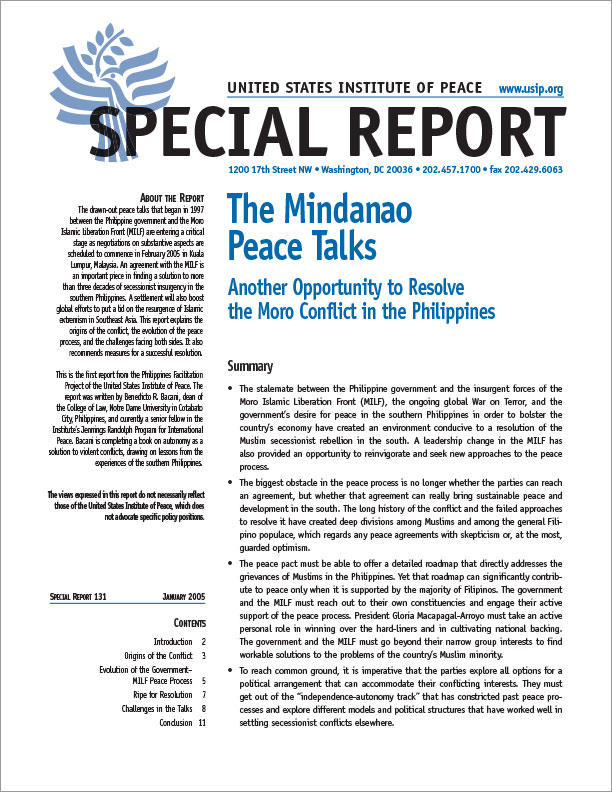
Summary
- The stalemate between the Philippine government and the insurgent forces of the Moro Islamic Liberation Front (MILF), the ongoing global War on Terror, and the government's desire for peace in the southern Philippines in order to bolster the country's economy have created an environment conducive to a resolution of the Muslim secessionist rebellion in the south. A leadership change in the MILF has also provided an opportunity to reinvigorate and seek new approaches to the peace process.
- The biggest obstacle in the peace process is no longer whether the parties can reach an agreement, but whether that agreement can really bring sustainable peace and development in the south. The long history of the conflict and the failed approaches to resolve it have created deep divisions among Muslims and among the general Filipino populace, which regards any peace agreements with skepticism or, at the most, guarded optimism.
- The peace pact must be able to offer a detailed roadmap that directly addresses the grievances of Muslims in the Philippines. Yet that roadmap can significantly contribute to peace only when it is supported by the majority of Filipinos. The government and the MILF must reach out to their own constituencies and engage their active support of the peace process. President Gloria Macapagal-Arroyo must take an active personal role in winning over the hard-liners and in cultivating national backing. The government and the MILF must go beyond their narrow group interests to find workable solutions to the problems of the country's Muslim minority.
- To reach common ground, it is imperative that the parties explore all options for a political arrangement that can accommodate their conflicting interests. They must get out of the "independence-autonomy track" that has constricted past peace processes and explore different models and political structures that have worked well in settling secessionist conflicts elsewhere.
- Any peace agreement must provide strong mechanisms for implementation. Peace processes in the past have produced good agreements but were poorly implemented. A neutral third party must be engaged to oversee the implementation of the peace pact.
About the Report
The drawn-out peace talks that began in 1997 between the Philippine government and the Moro Islamic Liberation Front (MILF) are entering a critical stage as negotiations on substantive aspects are scheduled to commence in February 2005 in Kuala Lumpur, Malaysia. An agreement with the MILF is an important piece in finding a solution to more than three decades of secessionist insurgency in the southern Philippines. A settlement will also boost global efforts to put a lid on the resurgence of Islamic extremism in Southeast Asia. This report explains the origins of the conflict, the evolution of the peace process, and the challenges facing both sides. It also recommends measures for a successful resolution.
This is the first report from the Philippines Facilitation Project of the United States Institute of Peace. The report was written by Benedicto R. Bacani, dean of the College of Law, Notre Dame University in Cotabato City, Philippines, and currently a senior fellow in the Institute's Jennings Randolph Program for International Peace. Bacani is completing a book on autonomy as a solution to violent conflicts, drawing on lessons from the experiences of the southern Philippines.
The views expressed in this report do not necessarily reflect views of the United States Institute of Peace, which does not advocate specific policy positions.